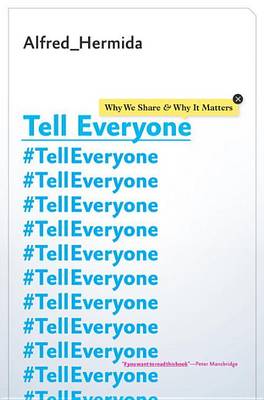
Lianne
Tell Everyone is a timely book because it looks at the ways in which social media is connecting us socially, politically, compared to what came before. It’s a bit of a mish-mash of the personal and the public, of how it circumvents or opens avenues of communication and the delivery of news that are outside of the traditional routes of journalism. So it seems a bit of a mix, but that’s what social media is, blurring the lines between the private and the public, and engaging us in ways that are different.
Much of the book is focused on journalism because social media has made such an impact on the field. Often times the breaking news is coming from Twitter or Facebook because it’s so immediately accessible to people on the ground, but at the same time the questions of accuracy, relevance, and the way the news is perceived, received, and presented are raised.
Weaving in and out of the book is also the way in which we socialise and conduct ourselves. Although the first three chapters focuses a lot on the topic and the ways in which we project ourselves and our thoughts, whether it be through Twitter or Facebook, and how we socialise and collectivise online.
Overall, Tell Everyone is a very informative book in trying to make sense of social media and how it’s become such a norm in our society. Like social media, the book does zip through very quickly, dropping events and examples and info here and there and then moving along to the next topic, which is a bummer if you wanted to learn more about one particular aspect of social media. Nonetheless, it’s a good introduction into thinking more about the way we socialise–whether it’s via Facebook or Twitter, Reddit or YouTube–and well worth checking out.
